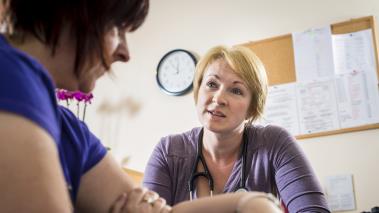
The programme - now in its sixth year - aims to raise awareness of NICE standards and guidance amongst local NHS organisations, local authorities, the social care sector and beyond.
NICE has awarded 10 Fellowships and 10 Scholarships to professionals including consultant doctors, research fellows, physiotherapists and GPs.
Three projects will focus on pregnancy and assess:
- whether NICE’s quality standard on fertility support for children and young adults with cancer is being implemented
- how services are delivered to women with severe fear of childbirth
- whether NICE’s guidance on the management of ectopic pregnancy and miscarriage is being followed nationally.
Other projects include looking across the health and social care system at how the NICE quality standard on patient experience is being used , whether NICE guidelines are being applied in primary care with a specific emphasis on lipid lowering guidance and cardiovascular risk scoring, and exploring whether NICE’s recommendations on setting up severe asthma services are being implemented.
Professor Gillian Leng, Deputy Chief Executive of NICE, said: “Our Fellows and Scholars Programme is a unique opportunity for motivated and dynamic individuals across the country to exchange ideas and get support from NICE in driving up the quality of care in their local and professional communities.
“I would like to offer my congratulations to our new Fellows and Scholars and I warmly welcome them to the Institute.”
Those participating in the NICE Fellows and Scholars programme are expected to carry out NICE-related activities or projects during their tenure and help raise awareness of the Institute's guidance and other products to peers and colleagues. In return, they are able to learn about and get involved in the inner workings of NICE and networking with those encouraging evidence-based practice.
NICE Fellows are senior professionals such as consultants, lecturers and clinical, public health and social care directors, who work with NICE for three years. Scholars are professionals such as registrars, managers and researchers, who work with NICE for 12 months. Both roles are unpaid and undertaken alongside existing jobs and other professional responsibilities.